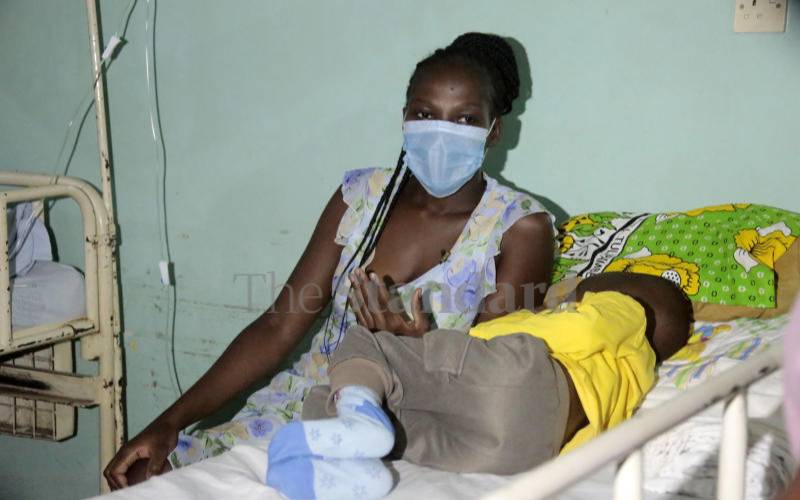×
The Standard e-Paper
Join Thousands Daily

The hospital has become the second home for Seline Museka and her husband Humphrey Egessah and their children with sickle cell disease.
The couple from Karagita in Naivasha town have four children- three of whom had disabilities. Their eldest underwent hip replacement surgery attributed to complications from avascular necrosis (temporary or permanent loss of blood supply to the bone) that can cause bone collapse.